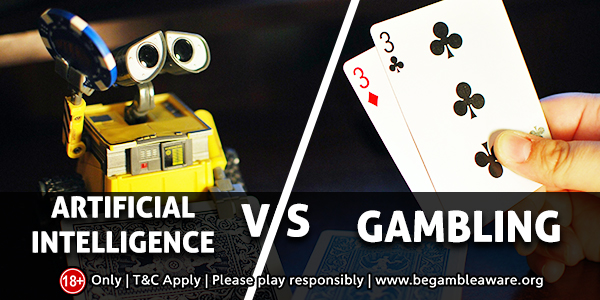Impact of Artificial Intelligence in the Gambling Industry

Ever since the invention of Artificial Intelligence (AI), it has become an integral part of almost every technological evolution present today. AI is also now being used in almost every field that has anything to do with the internet or technology, to bring out more life. This includes the industry of online gambling, with many online casinos now focusing on providing more and more AI-powered 3D games. So, how is AI changing the world of online gambling and what does AI mean for gamblers?
AI Knows You Better Than You Think
Some of the online casinos are using AI to forecast customers’ behaviour. AI can track your moves and get to know you in a way you could never have imagined. It can tell what drives you, makes you quit or change the game. This information allows casinos to change their practices accordingly and keep luring customers. Many online casinos regulated by the UK Gambling Commission already have started incorporating AI into their system.
AI Can Catch Cheaters
Safety and regulation of rules are deemed very important for online casinos all over the web like the ones governed by the UK gambling laws. But because online casinos have no cameras or broad-shouldered security staff to keep an eye on cheating players. Hence most online casinos use AI to weed out gamblers that like to play unfair. All honest players benefit when AI quickly identifies and stops a cheating scheme.
Player vs. Machine
AI is ideal for developing winning game-playing strategies, especially games of skill. In 1997, Deep Blue, IBM’s chess-playing AI engine, became the first computer to beat a chess grandmaster, Gary Kasparov. IBM’s question and answering AI, Watson, beat Jeopardy champions to win $1 million in the final in 2011. Libratus, Carnegie Mellon’s entry into the AI game-playing field, won $1.76 million from professional Poker players Jason Les, Dong Kyu Kim, Daniel McAulay and Jimmy Chou in 2018. Over twenty days they played almost 120,000 hands of no-limit Texas Hold ’em; Libratus not only learnt how to play winning hands successfully but also to bluff effectively. So, how was it possible for a robot to top human players in the game of Texas Hold’em? This poker game relies heavily on betting strategy and game theory, not to mention bluffing and the cards dealt. All 4 Poker stars claimed that Libratus learned from each mistake they made and exploited it in the next round.
AI and Smoother Customer Service
Be it on the phone or through a chat feature, we all have experienced the frustration that comes from dealing with a customer service ‘representative’ that is not human. But smarter A.I. is now putting those inhuman bots out of service. Advanced bots that can access and analyze knowledge about a customer’s specific playing habits, are slowly replacing them. This allows quick delivery of personalized and more relevant answers. According to a recent study, a major percentage of brands are saying that they have already implemented or are planning to implement AI by 2020 to better serve their customers.
AI and Millennials
AI could be the reason why more millennials are nowadays more drawn to gambling. The possibility of AI-driven VR could allow casino operators to lure players into the online casino world with limitless possibilities, and capture the millennial market. Millennials are unlikely to enter a physical casino or play via desktop, but they are already more engaged in mobile online gambling than their older peers. VR will only amplify this growing trend, bringing in more exciting and innovative experiences in many industries (for instance in the UK gambling industry).
AI and Gambling Addiction
Online casinos are difficult to monitor, but due to AI, early addiction detection and prevention are possible. By analyzing the player’s data for problematic behaviour, AI can spot suspicious players and notify online casino operators. Playtech’s BetBuddy is one example of technology applying AI to capture a player’s digital footprints and identify high-risk gamblers.
Future Of AI In The Gambling Industry
Gambling, whether online or land-based, produces huge amounts of data, both about player behaviour and game performance. For land-based table games, it can be difficult to capture accurate player and game data, but this is improving rapidly. AI can be used to optimise the game design to better appeal to customers and create marketing campaigns which are more likely to appeal to a target group, customise the user interface of games so that players only see games that are likely to appeal to them and optimise revenue streams from slots or casino games. Machines are becoming better and much faster than humans at tasks that require processing large amounts of background knowledge and skill.
Review Summary
Review Name: Impact of Artificial Intelligence in the Gambling Industry
Posted On: 10/04/2020
Author: Emma Denton





